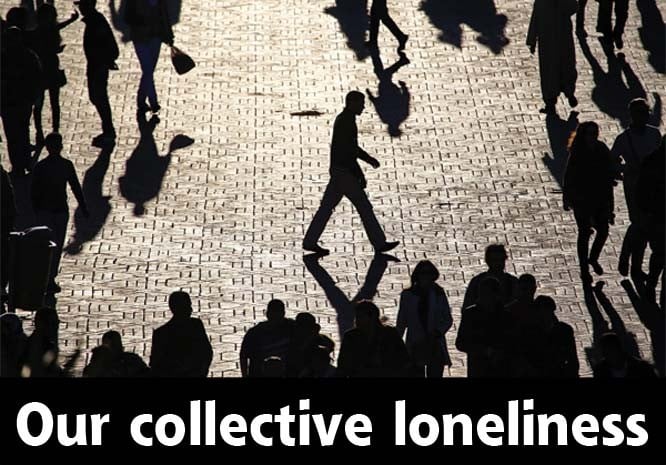

Are we becoming more lonely as individuals and society? Is that even a valid question to ask?
Being in a state of loneliness can be different things to different people. Cliched as it might sound, it’s a fact that some people can be lonely in a crowd while others can feel perfectly at ease being alone. There is of course the fine distinction between words like lonely, alone and isolated. But for today’s Special report, we have focused on the collective loneliness we experience in the present times. There is in our minds a blissful place and time sometime in the past when people experienced a sense of togetherness.
But is loneliness essentially a bad state? Not for the artists and writers who go out seek it, make it their own, and create poems and paintings that the world can read and see and feel elevated.
Yet, a grade-driven education system and material goals can lead to depression and ensuing loneliness among the youth.
We have urban loneliness as opposed to that usually associated with being alone physically, an inability to connect with oneself than with others. After the advent of social media, it has attained another meaning altogether where being connected to the outside world in real time is either seen as proximity of the mind or a drift towards loneliness by another name.
Also read: Our collective loneliness
Perhaps loneliness is an existential question; humans being unable to distance themselves from the very thing they dread, something which follows them like their own familiar shadow. Still, there are no easy answers to the questions raised above. Looking for these answers is an equally interesting and instructive exercise. This is what we have attempted in the following articles on our Special Report today.